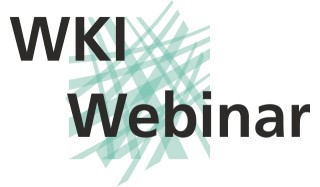From research into practice
For many years, the Fraunhofer WKI has offered free online seminars in both German and, in some cases, English. Experts from the Fraunhofer WKI provide insight into their current research and development work. The focus is on practical solutions for manufacturing companies.
 Fraunhofer Institute for Wood Research
Fraunhofer Institute for Wood Research 








